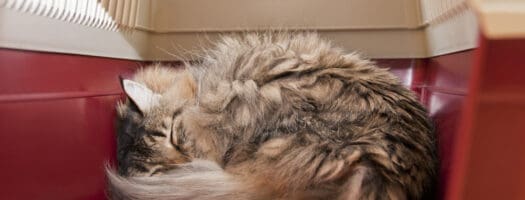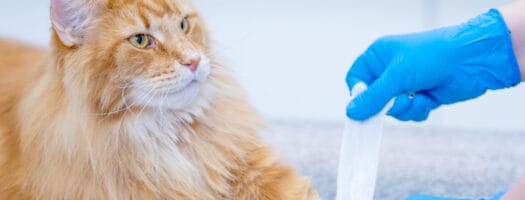7 Expert Tips to Get a Sick Cat to Eat
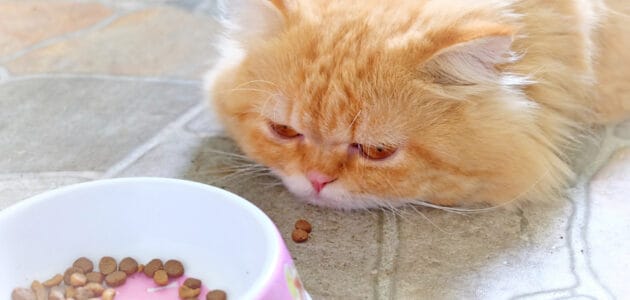
If your beloved cat is walking away from their food bowl or is refusing to take even the tastiest morsels that you offer as a treat, it can be very worrying. How to get a sick cat to eat is one of the biggest issues that many pet owners face when their furry friend is unwell; however, fortunately in many cases, the problem can be resolved once you’ve pinpointed the reason why they’re rejecting their meals.
Whether your pet is in pain, still recovering from an operation, elderly, stressed or depressed, the key to getting him to love his food again often lies in offering the right kind of temptation and encouragement. With a little extra loving care and attention, and by offering the most delicious titbits, you can often eliminate this concerning issue quite quickly.
With this in mind, here we give you some expert advice on why your cat may not be eating, as well as tip to help you to entice your four-legged companion to start eating again. We’ll also look at what can happen if your cat refuses to eat, as well as some advice for what to do if these tips don’t work.
Why Won’t My Cat Eat?
Before you can start working on trying to encourage your feline friend to tuck into their favorite dinner, you need to work out why he has stopped eating. There are quite a few reasons why this may have occurred.
Pain
Pain is one of the main reasons why your cat is likely to have stopped eating. Gum disease and dental problems are the main culprits here; however, other medical problems (such as eye disorders, sore throats, spinal or neck pain, ulcers or oral cancer) all result in pain during eating, which may be reducing your pet’s food intake.
Some signs to look out for that indicate pain is causing your pet to stop eating include:
- Losing a tooth or multiple teeth
- Swelling of their face
- Smelly breath
- Suddenly dropping food or becoming messy when eating
- Drooling
- Swollen or red gums
- Stopping grooming
- Poor coat condition
There are also other physical and emotional causes of cats suddenly losing interest in eating.
Loss of Smell
Cats are heavily reliant on their sense of smell in order to taste food. Therefore, if they have nasal congestion due to rhinitis, flu or nasal cancer, for example, they may start to be more pickier about what they eat.
Elderly cats not only have a poorer sense of smell but they’re also more likely to be suffering from ailments, such as arthritis, which make them less active. This, in turn, reduces their drive to consume food.
When this is paired with dehydration (which is common in older cats), constipation can be the result, which further reduces their drive to eat. In this case, you may want to try a high fiber food for your cat.
Environmental Stressors
Environmental stressors affect cats greatly. Moving to a new house is a stressful enough event to affect your pet’s appetite. If another cat is added to your household, or if a member of the household leaves or passes away, this too can have an impact on your feline’s appetite.
Of course, another major reason for your pet refusing to eat is because he is feeling unwell or has just been through a medical procedure. Below, we’ll look at this in greater detail.
Food Aversions
Quite often, humans have certain foods that they’re unable to face, simply because there is something about them that makes them feel unwell. Cats are exactly the same.
Often, cats will avoid a specific food simply because they ate it when they were feeling unwell in the past and now associate it with the feeling of nausea that they experienced at that time. This is known as food aversion.
It may occur if your cat is unwell but is being force-fed or constantly offered one specific food. Your cat will associate their feelings of sickness with the food that you’re giving them and, therefore, avoid it in the future.
If you’ve found your pet appears to lack an appetite, never leave their food down for them. Most importantly, never try force-feeding your cat with a syringe. There are many other things you can try that will encourage your pet to start eating once more.
What Can Happen if My Cat Doesn’t Eat?
Regardless of the reason that your cat is going without food, it’s important to address the problem as quickly as possible.
While dogs are able to go without any food for quite a long time without suffering from any serious consequences, this isn’t true for cats. A cat that doesn’t eat is at risk of fatty liver disease or hepatic lipidosis, which can be potentially life threatening. This condition can develop even if your cat hasn’t eaten for quite a short period of time (for example, 2 – 3 days).
Also, cats require certain nutrients to maintain good health and if they don’t get enough of them, this can also be dangerous.
When Should I Take My Cat to the Vet if They Won’t Eat?
Everyone knows that cats are often picky eaters. However, if your pet has refused to have any food for 24 hours or longer, this is a major cause for concern.
Remember, your cat can’t let you know the way he is feeling, so you need to monitor his health carefully and seek treatment if he seems unwell.
You should always take your cat to get a check-up by their vet to make sure there are no medical issues to worry about. Your veterinarian can give you expert advice about how to get a sick cat to eat and can also get to the bottom of the issues that are causing this problem, helping to eliminate your worries about your beloved furry friend and getting him on the road to recovery as quickly as possible.
7 Expert Tips to Get Your Sick Cat to Eat
Once you know the cause of your cat’s lack of appetite or refusal to eat their food, give these tips a try.
1. Warming up Their Food
Older and unwell cats often find that their sense of smell is reduced. This can deter them from eating, since smell has a vital role to play in their enjoyment of eating.
If you heat up their food for 10 – 15 seconds in your microwave, this will help to bring out its flavor while also softening the food’s texture. This makes it simpler to eat and more palatable for a sick or elderly pet.
Take care to always stir warmed food before you serve it to your pet in case there are hot spots that could burn your cat’s mouth.
2. Feed Your Pet When They’re Sleepy
Although it seems counterintuitive to wake up your cat when they’re asleep, especially if they’re unwell, if you wake up your pet by waving some warm wet cat food under their nose, there’s a good chance that they’ll show some interest in tucking in.
Choose a food that has a strong odor, such as seafood flavors, as these will be most appealing to your feline companion.
3. Try Different Textured Food
If your pet once loved their chunks in jelly but now rejects them outright, it could be a dental problem that is causing so much pain that chewing is difficult. You may find that switching to food with a different texture could resolve the issue quickly and easily. Pate style varieties are often the best choice as they’re softer and easier to eat without the need to chew excessively.
Another way to change the texture of your pet’s food is to add some of the water from a can of anchovies or some low-salt chicken broth into it, and then blending it to make a gruel-like soup that your cat can drink rather than having to chew.
4. Experiment With Hand-Feeding
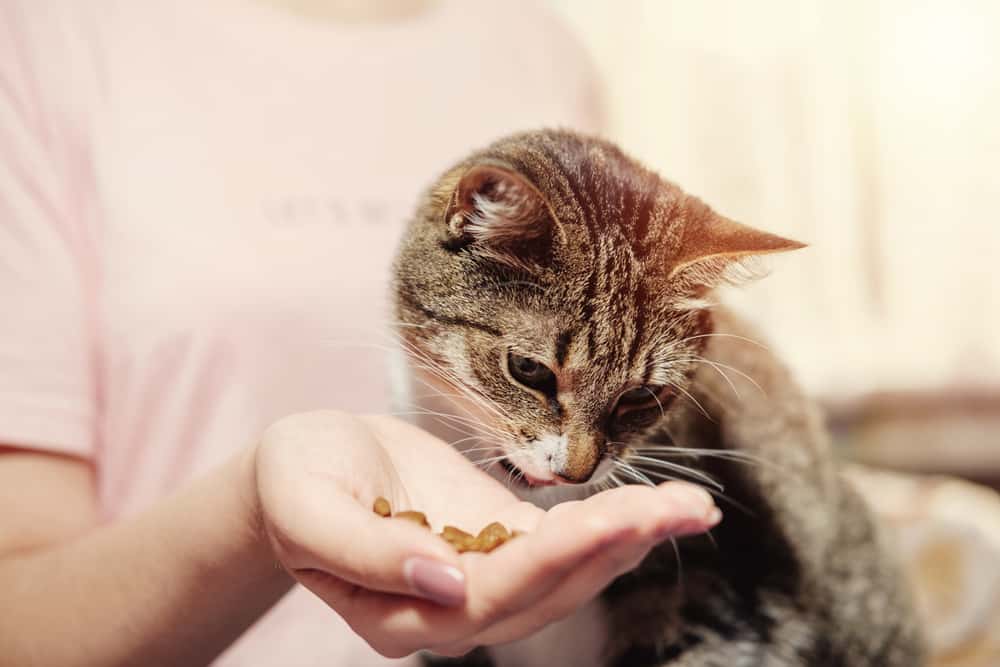
Although feeding your cat by hand is messy, it can be well worth it if it resolves your pet’s eating issues. Sometimes cats associate their food bowl with nausea or sickness and, therefore, stop eating from it.
Try offering a little food from your own hand to your pet, coaxing them using a soft and gentle voice. Your furry friend will often feel more at ease and safe knowing that you’re around, and this could be just the encouragement they need to tuck in.
5. Add Food Toppings and Enhancers
There are some ingredients that are known to be irresistible to felines, and when you add them to their food, they could really help to persuade your picky pet to eat.
Parmesan cheese is one excellent addition to your kitty’s meal. Simply grate a little and sprinkle it over their dish before serving. The cheesy, salty flavor often piques even the most reluctant cat’s appetite and interest.
Nutritional yeast powder is another great enhancer to get your pet to notice their food. With its nutty, cheesy flavor, it can prove irresistible to your cat and, as an added advantage, it’s packed with B vitamins that benefit your four-legged companion’s health.
6. Choose the Right Spot to Feed Your Pet
Your cat needs to feel secure and comfortable when eating, so make sure you’ve chosen a place to put their food bowl where they’re away from other pets in the household with whom it may need to compete.
By simply giving your cat their meal in a quiet and peaceful location, you may be able to encourage them to sample what you have to offer.
7. Feeding Little But Often
If your cat can’t finish a full meal because they are unwell, try feeding them the same amount of food but over several feeding sessions.
Instead of giving your sick pet two or three large bowls of food each day, try switching to multiple little servings instead. Offering a small amount of freshly served food on a regular basis will support your pet’s nutritional needs, and this will also be more appealing to an unwell cat who is put off by seeing a large food portion in their bowl.
If you’re out of the house for long periods during the day or night, you may want to invest in an automated cat feeder. This will ensure that your pet has small amounts of food at regular intervals even when you’re not at home, so you aren’t restricted to only serving large meals when you’re present.
Is Baby Food a Good Choice for My Cat?
Many cat owners try to give their pet baby food when encouraging their sick or reluctant feline to eat. Since it’s quite simple to lap due to its soft and mushy texture, it seems like a natural choice.
However, many types of baby food include powdered garlic or onion as a flavoring for the food. Cats should avoid these ingredients since they are toxic. Therefore, baby food is best avoided when feeding your pet.
Can Medication Help Increase My Cat’s Appetite?
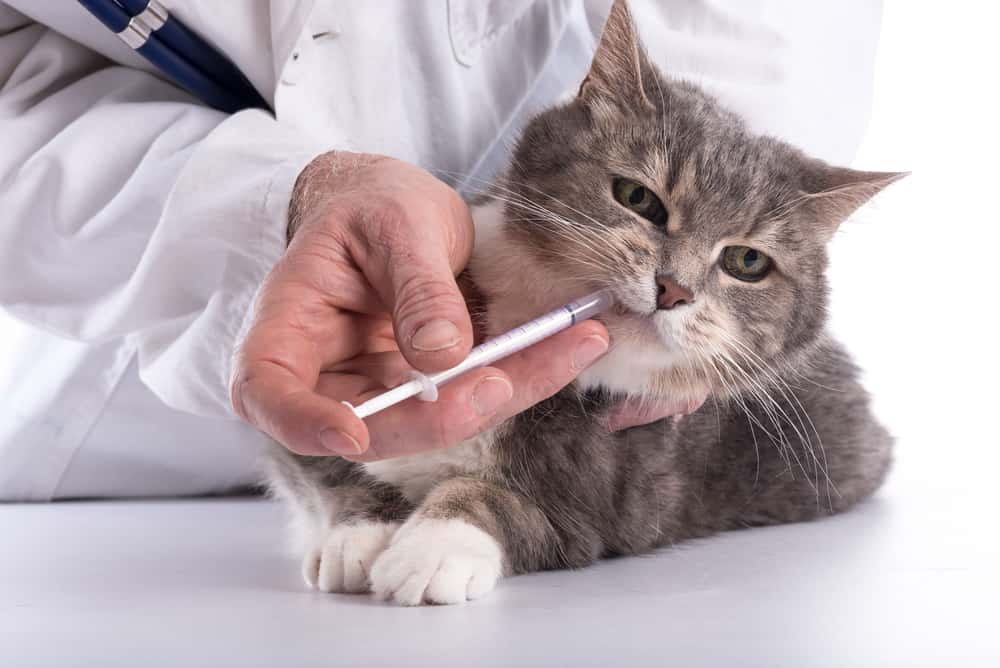
Sometimes, your vet will prescribe your pet an appetite stimulating medication such as:
- Cyproheptadine – this is an antihistamine which stimulates appetite in cats. There are, however, some potential side effects which could be problematic for your pet.
- Mirtazapine – this human antidepressant can increase your cat’s appetite when given in very small doses.
- Diazepam – this drug is occasionally used to stimulate a cat’s appetite, but since it may cause liver failure, it’s best to avoid it.
- Steroids – these can also sometimes work to stimulate appetite in felines, but they often have other unwanted effects, so they’re usually only prescribed when they also treat an underlying illness in your pet.
My Cat Has Had an Operation – Do I Need to Make Him Eat?
Just like humans, when cats are seriously unwell or if they’ve just been through a surgical procedure, they often don’t want to eat once they’ve returned home. While this isn’t too surprising, it can cause major issues for your beloved pet.
Cats that don’t eat because they’re feeling unwell will become even more unwell and weak due to lack of food. Eventually, your cat’s body will begin breaking down its body tissues to produce energy so that it can function. This, in turn, slows down healing, so your pet takes much longer to recover from their procedure.
Eating is vital in the recovery process since lack of food causes malfunctions of the immune system, leaving your pet susceptible to infections. If your pet doesn’t eat, it can also alter the way in which its body responds to prescribed medications. This, too, can cause other health issues. Therefore, encouraging your sick cat to eat is essential for their ongoing well-being and swift return to good health.
Help Your Cat to Eat Again
When your beloved cat stops eating, it can be a stressful situation. But thankfully, if you pay close attention to what is preventing your cat from eating, you can more easily find the solution they need.
Be patient with your pet, and do whatever it takes to help get them eating again. Seeing your cat healthy and happy will be well-worth the effort!


